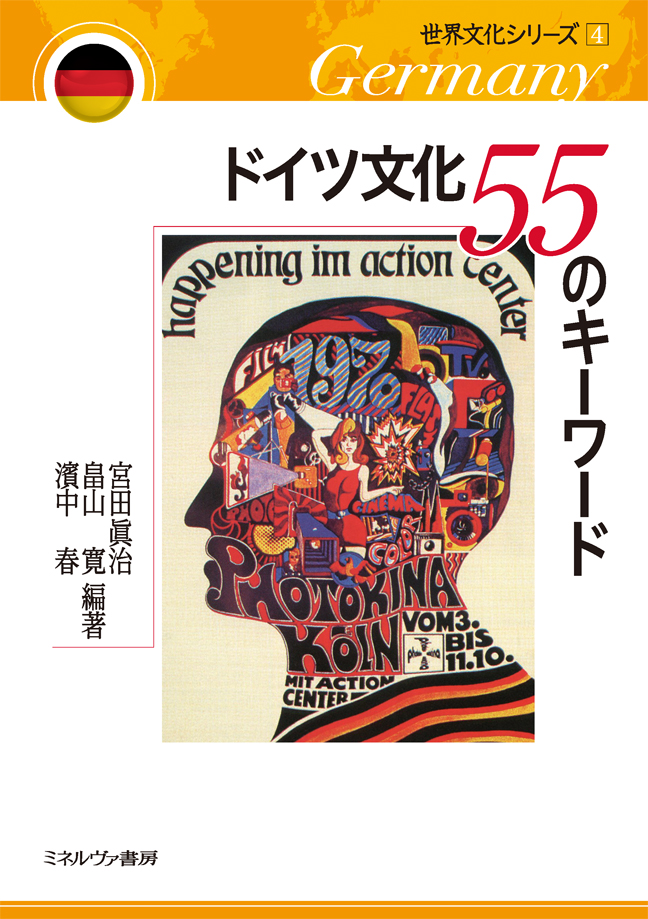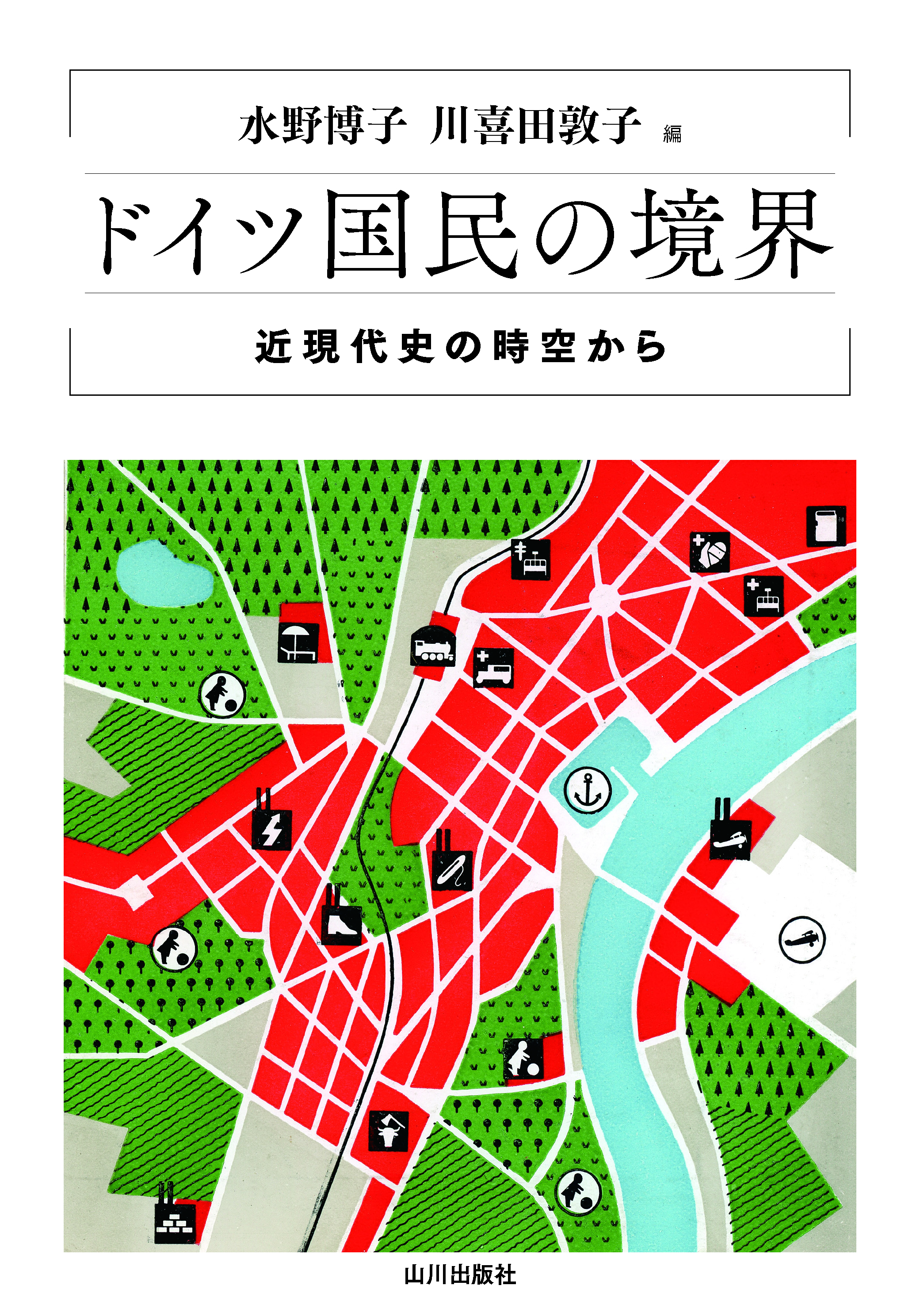
Title
World Culture Series 4 Doitsu Bunka 55 no Keyword (German Culture: 55 Keywords)
Size
296 pages, A5 format
Language
Japanese
Released
March 30, 2015
ISBN
978-4-623-07253-8
Published by
Minerva Shobo
Book Info
See Book Availability at Library
Japanese Page
This book was published coinciding with the 25th anniversary of German reunification. Today, younger generations may actually be unfamiliar with Germany’s past as a divided nation. This book was compiled to introduce readers to the diverse aspects of German culture, focusing on the past as well as the present.
The first point of reference is present-day Germany. Germany is conveyed through various media as well as German objects and events that enter our everyday lives in various forms. These are our starting point. These objects and events reveal various aspects, both as we go back in time as well as when we follow path to the present with long strides.
The book is also intended to give readers the chance to flip their cliché notions of Germany and restructure these simplistic stereotypes into complex and dynamic perceptions. Take “German forests” for example. The phrase conjures up fairy-tale (Märchen in German) images of nostalgic, ancient forests, as it is often shown in sightseeing posters. However, “This love of forests exhibited by Romanticists was non-historical, having no grounds for the reality of Germany’s forest history.” In this country, forests have continued to deteriorate following the period of mass deforestation in the Middle Ages. The present-day forests are a result of replanting that took place in the late 18th century and onward. Nevertheless, “The ideological forests with aspiration and nostalgia as its target” are not simply for sightseeing brochures, but also “Emerges by representing its root … when the forests are endangered,” as often referred to by environmental activists (the quotations above are cited from The Forests by Hisako Ono).
32 experts contributed articles based on contemporary studies of German social history, media and “memory,” giving this publication rich content and a unique perspective.
The idea was to allow various events in diverse fields to come together through viewing a single common phenomenon, and eventually to form a network that may offer some clues for approaching this incredibly problematic complex structure known as “Germany.” In order to visualize even a fraction of the relevance it has to the subject, the main texts are given numbers for cross-referencing. This system serves as a useful tool for finding materials relevant to each section and should become quite an effective tool to think about “Germany.”
(Written by MIYATA Shinji, Associate Professor, Graduate School of Humanities and Sociology / 2017)



 Find a book
Find a book


